
Exploring the Wonders of Debub Region, Eritrea
The Debub Region in Eritrea is a treasure trove of historical and cultural marvels. Located in the southern part of the country, it is known for its picturesque landscapes, rich history, and warm hospitality. The region is home to the ancient city of Qohaito, where you can explore archaeological sites that date back to pre-Aksumite times. The ruins here offer a glimpse into the region's vibrant past, with remnants of temples, palaces, and rock art. Another notable attraction in Debub is the town of Senafe, which sits at the foot of the stunning Metera Mountains. Senafe is famous for its beautiful scenery and traditional stone houses. It is also the gateway to the Metera archaeological site, where a towering obelisk and other fascinating ruins await discovery. Hiking enthusiasts will find the surrounding mountains perfect for trekking, offering breathtaking views and a chance to connect with nature. Debub Region is also known for its vibrant local markets and friendly communities. Visitors will enjoy wandering through bustling markets, sampling local cuisine, and experiencing the unique culture of the Eritrean people. Whether you are a history buff, an adventure seeker, or someone looking to immerse yourself in local traditions, Debub Region offers a diverse and enriching travel experience.
Local tips in Debub Region
- Carry bottled water, as tap water may not be safe to drink in some areas.
- Respect local customs and dress modestly, especially when visiting religious sites.
- Hire a local guide when exploring archaeological sites for a more informative experience.
- Visit local markets early in the morning for the best selection of fresh produce and crafts.
- Learn a few basic phrases in Tigrinya or Arabic to enhance your interactions with locals.
Exploring the Wonders of Debub Region, Eritrea
The Debub Region in Eritrea is a treasure trove of historical and cultural marvels. Located in the southern part of the country, it is known for its picturesque landscapes, rich history, and warm hospitality. The region is home to the ancient city of Qohaito, where you can explore archaeological sites that date back to pre-Aksumite times. The ruins here offer a glimpse into the region's vibrant past, with remnants of temples, palaces, and rock art. Another notable attraction in Debub is the town of Senafe, which sits at the foot of the stunning Metera Mountains. Senafe is famous for its beautiful scenery and traditional stone houses. It is also the gateway to the Metera archaeological site, where a towering obelisk and other fascinating ruins await discovery. Hiking enthusiasts will find the surrounding mountains perfect for trekking, offering breathtaking views and a chance to connect with nature. Debub Region is also known for its vibrant local markets and friendly communities. Visitors will enjoy wandering through bustling markets, sampling local cuisine, and experiencing the unique culture of the Eritrean people. Whether you are a history buff, an adventure seeker, or someone looking to immerse yourself in local traditions, Debub Region offers a diverse and enriching travel experience.
When is the best time to go to Debub Region?
Iconic landmarks you can’t miss
Asmara Palace Hotel
Discover the luxurious Asmara Palace Hotel in Eritrea's capital, offering elegant accommodations, exquisite dining, and a touch of local culture.
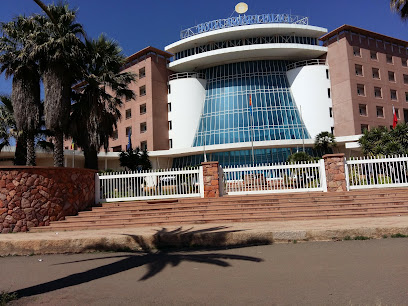
Fiat Tagliero ፡ፍያት ታሌሮ
Explore the Fiat Tagliero, an architectural masterpiece in Asmara, Eritrea, blending history and modernist design in a vibrant urban setting.
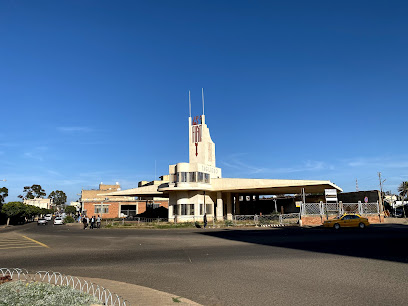
ኣስመራ ካቴድራል | Cathedral Our Lady of the Rosary
Discover the breathtaking Cathedral Our Lady of the Rosary in Asmara, a stunning architectural masterpiece and a center of faith and culture in Eritrea.
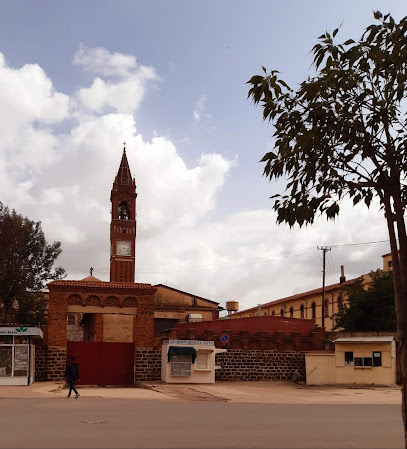
Emba Soira
Discover the breathtaking beauty of Emba Soira, Eritrea's highest mountain peak, a must-visit for nature lovers and adventure seekers.
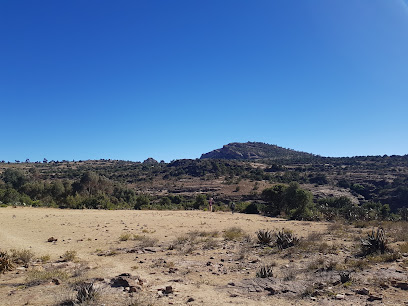
Dahlak Marine National Park
Explore the vibrant underwater world and stunning landscapes of Dahlak Marine National Park, a true paradise for nature lovers in Eritrea.
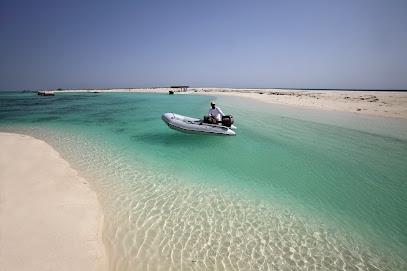
National Museum of Eritrea
Discover Eritrea's vibrant history and art at the National Museum of Eritrea in Asmara, showcasing collections that reflect a rich cultural heritage.
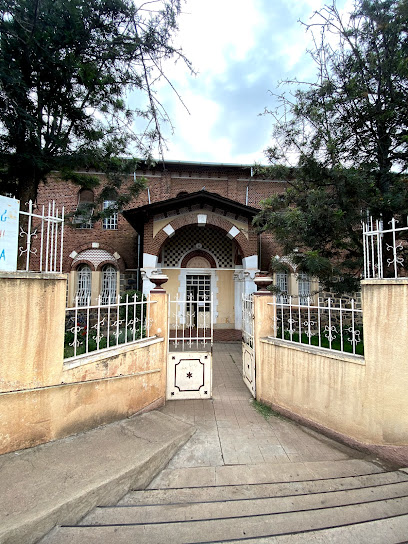
Mai jah jah
Experience the vibrant culture and stunning views at Mai Jah Jah Promenade in Asmara, Eritrea - a must-visit for every traveler.
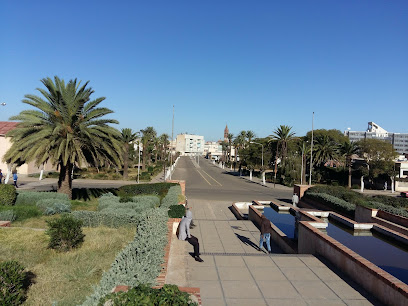
Debre Bizen
Experience the tranquility and rich heritage of Debre Bizen, a stunning monastery set in the serene landscapes of Nefasit, Eritrea.
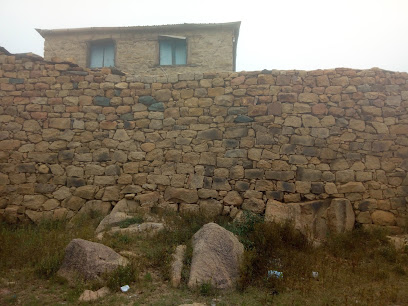
Semenawi Bahri National Park
Explore Semenawi Bahri National Park: A breathtaking destination in Eritrea where nature flourishes and adventure awaits.
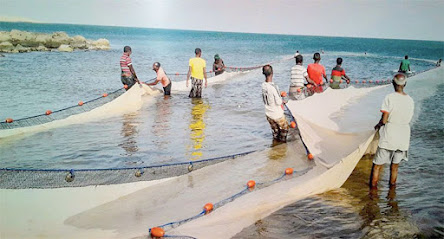
seven burger Places
Experience the vibrant flavors of Mendefera at Seven Burger Places, where delicious burgers and a welcoming atmosphere await every visitor.

Kolet, Eritrea
Explore the historic Kolet Church in Eritrea, a serene spiritual landmark showcasing rich cultural heritage and stunning architecture.
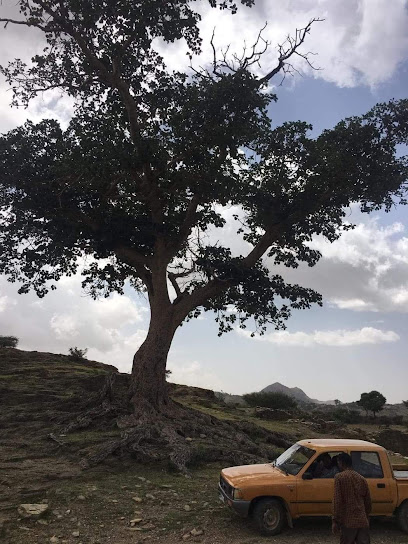
Dibta Amba
Explore the breathtaking Dibta Amba plateau in Eritrea, a natural wonder with stunning views and rich biodiversity, perfect for adventure and tranquility.

Batteria Eritrea
Explore the historical depths of Eritrea at Batteria Eritrea, where military heritage meets breathtaking landscapes.
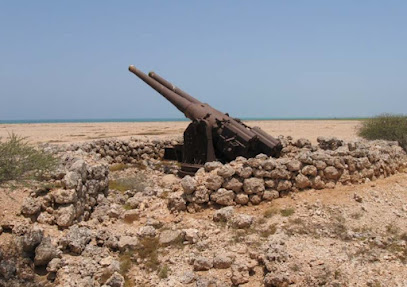
ደረቓ
Experience the natural beauty and rich culture of Tera-Emni, Eritrea—an unforgettable tourist attraction with breathtaking landscapes and warm hospitality.
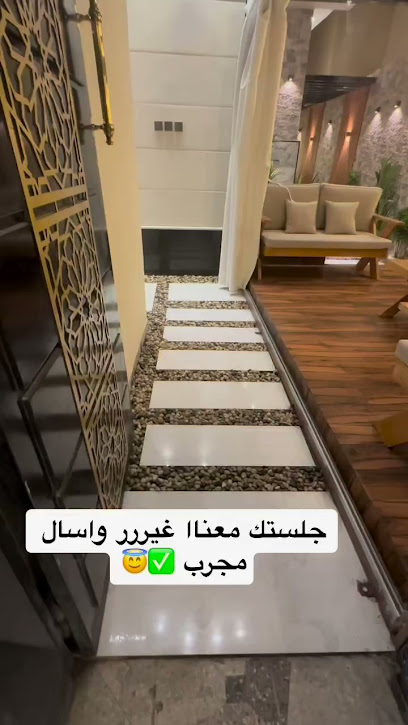
Selae Daero
Experience the heart of Asmara at Selae Daero, a vibrant housing society that immerses tourists in Eritrean culture and community life.

Unmissable attractions to see
Dam DENGEL
Discover the tranquility of Dam DENGEL Garden in Dekemhare, Eritrea, where vibrant flora meets serene landscapes for a perfect escape.
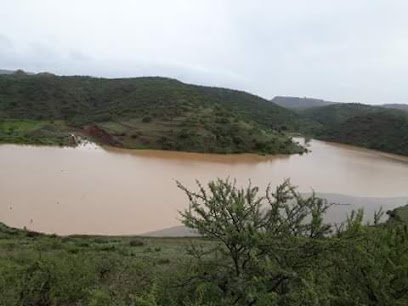
ገረብ
Explore the stunning gardens of Mandafara, Eritrea, where tranquility meets natural beauty in a captivating landscape.

ሩባ ዘናብ
Explore the tranquil beauty of ሩባ ዘናብ in Affesi, Eritrea—an idyllic park perfect for relaxation and nature appreciation.

Awda ዓውዳ ኢሮብ
Discover the serene beauty and rich heritage of Awda ዓልዐው ዐሕል in Kafna, Eritrea, an unmissable tourist attraction for cultural enthusiasts.
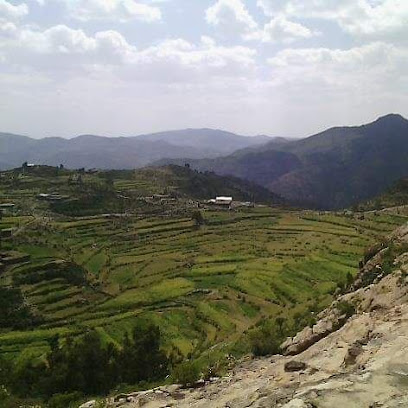
Jiraferi ጂራፌሪ
Jiraferi Park in Dekemhare offers a serene retreat for nature enthusiasts, with lush landscapes and a peaceful atmosphere perfect for relaxation.
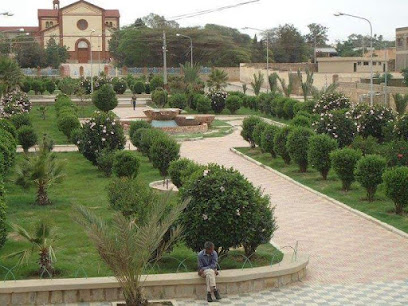
እንዳ ኣቦይ ቀሺ ጀርዲን
Discover the hidden beauty of Qua' atit's Garden, a tranquil retreat in Eritrea perfect for nature lovers and peaceful escapes.
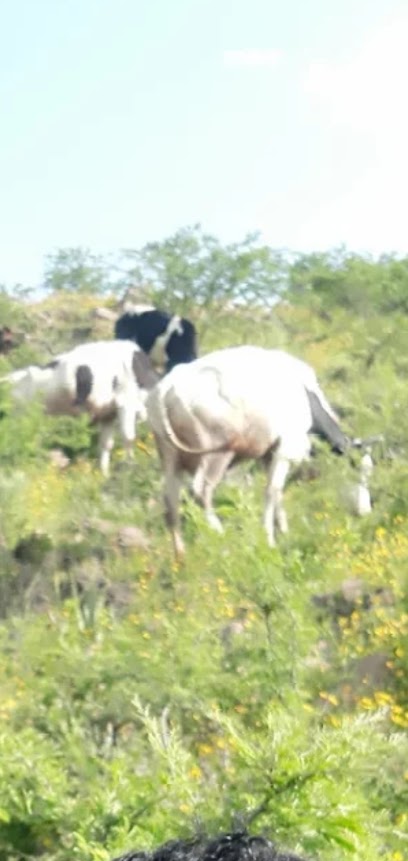
ሓመድ ወካርያ
Discover the tranquil beauty of Adi Lubso's Garden, a peaceful retreat filled with vibrant flora and a perfect escape in Eritrea.

ማይ ወደብረሀ
Discover the tranquil beauty of Adi K'eshi Gardens, a lush escape in Eritrea perfect for relaxation and nature exploration.

ዓሞቕቲ
Discover the tranquility of Eritrea's captivating park, a perfect retreat for nature lovers and families seeking relaxation amidst stunning landscapes.

Quelque part dans le monde
Explore the hidden wonders of Eritrea at Quelque part dans le monde, a captivating tourist attraction for adventurous souls seeking unique experiences.

ገዛዉቲ ሑሩይ .ጆዋይደን
Explore the lush gardens of Adi Keyh, a serene escape in Eritrea, where vibrant flora and tranquil landscapes await every traveler.

Kibrom tesfagabir
Discover the rich cultural heritage and stunning landscapes of Kibrom Tesfagabir in Adik'e, Eritrea, a must-visit tourist attraction.

Mereb (beradi)
Explore Mereb in Ayba, Eritrea, where breathtaking landscapes meet rich cultural heritage, making it a must-visit tourist attraction.

እንዳ ኢሳቅ ጀርዲን
Explore the serene gardens of Qua' atit, a tranquil escape filled with vibrant flora and the beauty of nature in Eritrea.
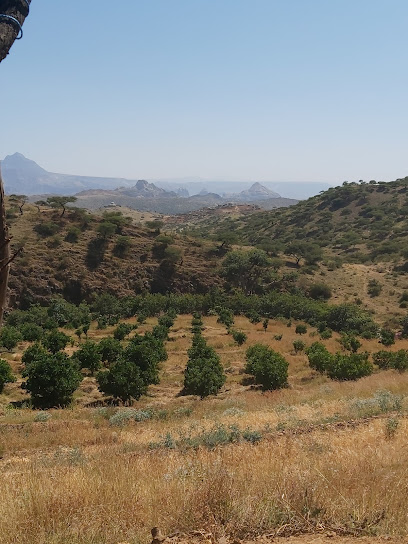
Snowpeia Desert
Explore the stunning Snowpeia Desert in Eritrea, where breathtaking landscapes and unique geological formations await your discovery.

Essential places to dine
Ghibabo Restaurant And Pizzeria
Discover the flavors of Eritrea at Ghibabo Restaurant And Pizzeria - where tradition meets culinary artistry in Asmara.
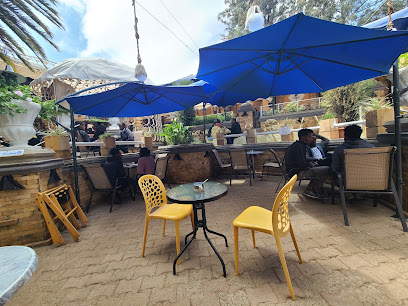
Spaghetti And Pizza House
Discover the delightful fusion of Eritrean and Italian cuisine at Spaghetti And Pizza House in Asmara—where every meal is a celebration of flavors.
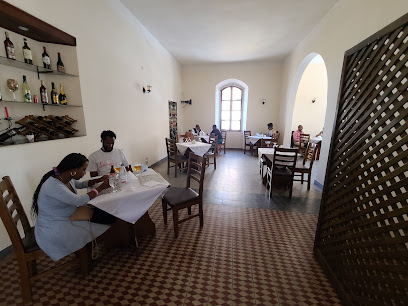
Golden Fork Fast Food
Experience authentic Eritrean flavors at Golden Fork Fast Food in Asmara - a culinary gem for every traveler.

Al Sicomoro Restaurant
Experience authentic Italian cuisine at Al Sicomoro Restaurant in Asmara, where fresh ingredients meet traditional recipes for an unforgettable dining experience.
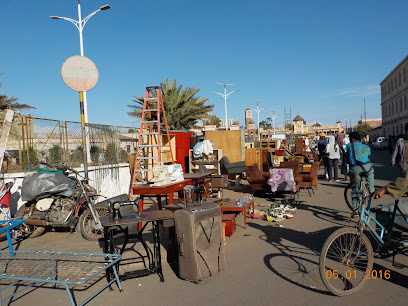
The Roof Garden
Experience authentic Eritrean flavors with breathtaking views at The Roof Garden in Asmara.
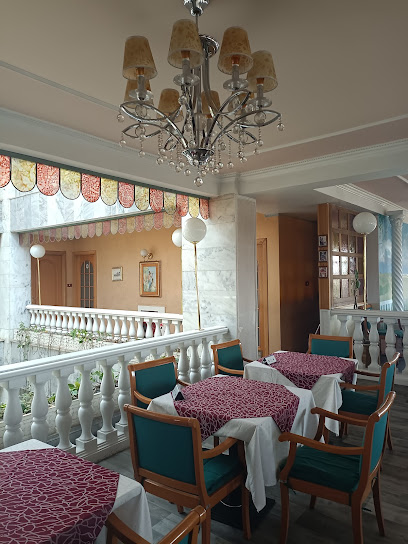
Casa degli Italiani Restaurant
Experience authentic Italian cuisine at Casa degli Italiani Restaurant in Asmara - where every dish tells a story.

Arobana Restaurant
Experience authentic Eritrean cuisine at Arobana Restaurant in Asmara – where tradition meets taste in every dish.
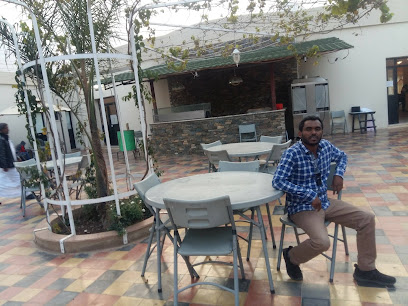
Bar Zilli
Experience the vibrant flavors of Eritrea at Bar Zilli – where grilling meets Italian charm in the heart of Asmara.
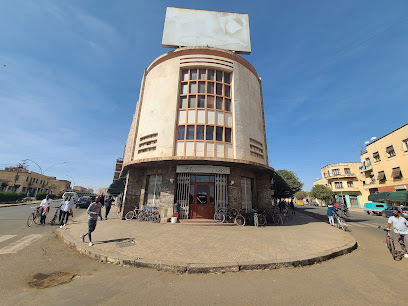
Banuna Bar & Restaurant
Discover family-friendly dining at Banuna Bar & Restaurant in Mitsiwa – where delicious food meets a welcoming atmosphere.
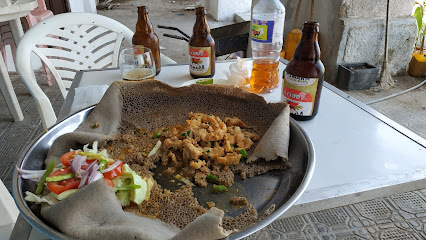
SIEM FASTFOOD
Experience authentic Eritrean fast food at SIEM Fastfood in Asmara – where taste meets tradition in every bite!
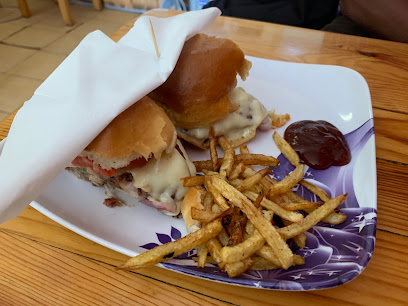
Hibal Snack Bar
Discover Hibal Snack Bar in Asmara for an unforgettable culinary journey through authentic Eritrean flavors.
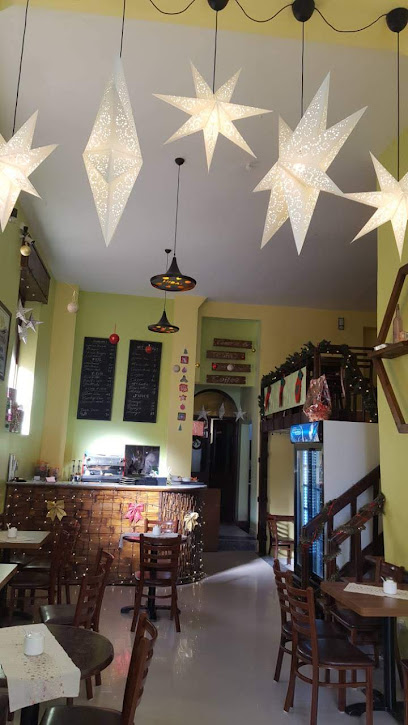
Eritrean Asmeea Senbel
Experience authentic Eritrean cuisine at Asmeea Senbel in Asmara - where every dish tells a story.

Grmay Luba Resturant
Experience authentic Eritrean cuisine at Grmay Luba Restaurant in Mitsiwa – a flavorful journey through local traditions awaits you.

Adi fnin ዓዲ ፍኒን
Experience authentic Eritrean cuisine at Adi fnin in Adi Agbay – a culinary journey filled with rich flavors and warm hospitality.
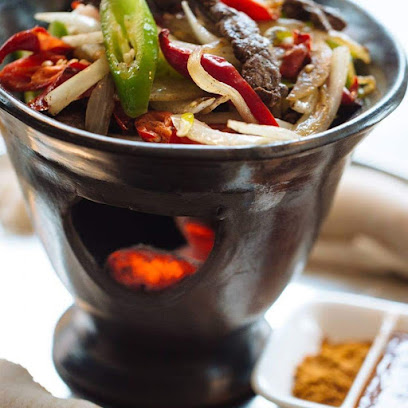
ኣኸዛ ስናክ ባር | Akeza Snack Bar
Discover authentic Eritrean flavors at Akeza Snack Bar in Mitsiwa - where tradition meets taste.

Markets, malls and hidden boutiques
Yemane Express
Explore the vibrant fashion scene at Yemane Express in Senafe, offering unique clothing and accessories that blend tradition and modernity.
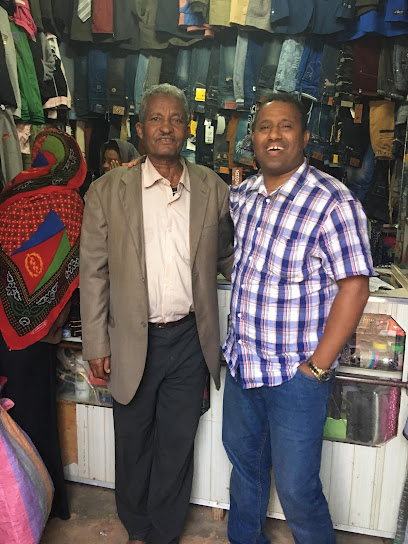
ኩዳር ሰገነይቲ Segeneyti Super Markt
Explore the vibrant flavors of Eritrea at Segeneyti Super Markt, your go-to grocery destination for local delights and fresh produce.

Aloniab supper market(Bilal Idris)
Experience the vibrant local culture and flavors at Aloniab Supermarket in Mendefera, Eritrea, where shopping meets community.
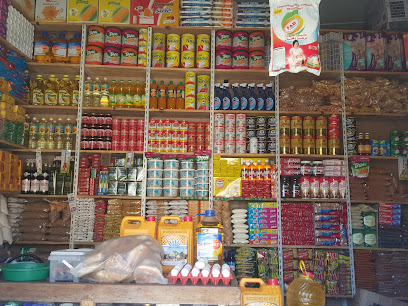
Massawa super market
Explore the vibrant Massawa Supermarket in Dbarwa, Eritrea, where local flavors and culture come alive in every aisle.

ኩዳር ደቀምሓረ Dekemhare Super Market
Explore local culture and flavors at Dekemhare Super Market, a vibrant grocery store in Eritrea offering fresh produce and unique culinary finds.

Sati boutique
Explore Sati Boutique in Senafe for unique Eritrean crafts and fashion, reflecting the rich culture and artistry of the region.

Zara Boutique
Explore Zara Boutique in Asmara for unique clothing that blends local culture with contemporary fashion trends.
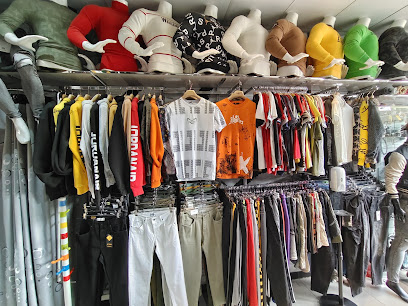
Merkeja ጣሓኒትን ድኳንን
Discover the essence of Eritrean culture at Merkeja ጣሓኒትን ድኳንን in Sibi'a, where local craftsmanship and vibrant community spirit come together.

እንዳ እያሱ
Discover the vibrant clothing culture of Eritrea at እንዳ እያሱ in Senafe, where tradition meets contemporary fashion.

Abi Boutique
Experience the essence of Eritrean fashion at Abi Boutique in Dekemhare, a unique shopping destination for clothing and accessories.

TesfaAlem Shop
Discover convenience and local culture at TesfaAlem Shop, the essential stop for travelers in Dekemhare, Eritrea.

Merkeja shop
Experience the warmth of Eritrean hospitality at Merkeja Shop, your go-to destination for local treats and unique souvenirs in Sibi'a.

ደሊና ቡቲክ DELINA BOUTIQUE
Explore Delina Boutique in Asmara for unique fashion and handcrafted accessories that reflect Eritrean culture.
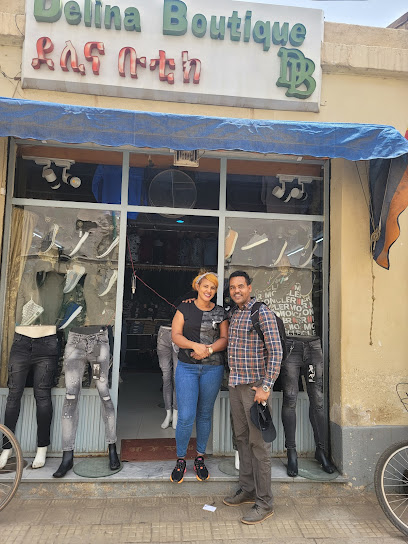
Kudar ኩዳር
Experience authentic Eritrean culture at Kudar, a charming store in Tserona offering unique local products and a warm atmosphere.

Shop enda kunbilachew
Discover authentic Eritrean culture at Shop Enda Kunbilachew, a charming general store in Asmara filled with unique local treasures.

Essential bars & hidden hideouts
Endhish Bus station
Explore the vibrant culture and scenic beauty of Eritrea from the bustling Endhish Bus Station in Mandafara, your gateway to unforgettable experiences.
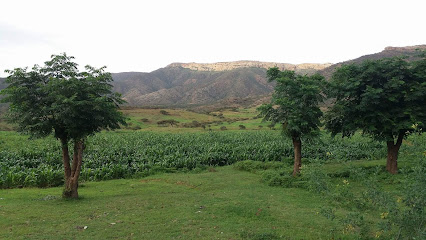
family Bar (tegera)
Discover the lively ambiance of Family Bar, a cultural hub in Mendefera, offering refreshing drinks and a taste of Eritrean hospitality.

Adi Tsadi ዓዲ ጻዕዲ
Experience the lively spirit of Eritrea at Adi Tsadi ዓዲ ጻዕዲ, a vibrant bar in Adi Mengodti offering authentic drinks and a warm atmosphere.

Merkeja shop and bar
Experience the vibrant local culture at Merkeja Shop and Bar, a lively spot in Sibi'a known for its friendly atmosphere and delicious drinks.

Robel
Discover the vibrant bar scene at Robel in Adi Agwa, Eritrea – where culture meets conviviality in a welcoming atmosphere.

Peacock Bar & Reasturant
Discover the vibrant flavors of Eritrea at Peacock Bar & Restaurant in Dekemhare, where authentic dishes and warm hospitality await you.

Forovia Bar and Restaurant
Discover the lively atmosphere of Forovia Bar and Restaurant, where delicious cuisine meets the vibrant nightlife of Asmara.

YonSam bar
Experience the lively spirit of Asmara at YonSam Bar, where Eritrean culture and social ambiance come together in a vibrant setting.

Dhakhtarka gabogab ee tuliguuleed
Experience the lively atmosphere and local culture at Dhakhtarka Gabogab ee Tuliguuleed, Eritrea's vibrant bar with unique drinks and entertainment.

Bar ባር ውርቃዊት
Experience the vibrant atmosphere and authentic Eritrean flavors at Bar ባር ውርቃዊት in Tserona, where locals and tourists gather.

Jaker
Experience the vibrant nightlife of Adi Agwa at Jaker, where locals and travelers gather for great drinks and unforgettable memories.

Central TR
Discover Central TR in Tera-Emni: a vibrant bar where locals and travelers come together for drinks, music, and unforgettable experiences.

Sedaw Bar and Restaurant
Discover the rich flavors of Eritrean cuisine at Sedaw Bar and Restaurant, where authentic dishes and vibrant culture come together in Dekemhare.

Bar jimi
Experience the vibrant nightlife of Barda at Bar Jimi, where local drinks, music, and camaraderie come together in a lively atmosphere.

Local Phrases about Debub Region
-
- Helloሰላም
[selam] - Goodbyeዋላ
[wala] - Yesአዎ
[awo] - Noአይ
[ay] - Please/You're welcomeመልእኽቲ
[mel'ekhti] - Thank youኣመሰጋእቲ
[amesega'eti] - Excuse me/Sorryሰላም
[selam] - How are you?እንቋዕ ነን?
[enqa'e nan?] - Fine. And you?አስራሕን. ኣይተርከን?
[asrahin. ayterken?] - Do you speak English?እቲ እንግሊዝኛ ትከይል?
[eti englishna tikeyl?] - I don't understandእንቋዕ ኣይትሓትን
[enqa'e ayt'haten]
- Helloሰላም
-
- I'd like to see the menu, pleaseመዓልቲን ብሙሉ ዝተኸፍእሉ ንስኻ
[ma'altin bimulu zetehkeful neskha] - I don't eat meatእምነተኛ ብትኽእል ኣይትዓምርን
[emnetagna b'tik'el ayt'amren] - Cheers!እንቋዕ!
[enqa'e!] - I would like to pay, pleaseገንዘብካ እንቋዕ
[genzebka enqa'e]
- I'd like to see the menu, pleaseመዓልቲን ብሙሉ ዝተኸፍእሉ ንስኻ
-
- Help!እንስራ!
[ensra!] - Go away!ንዕለት!
[negelt!] - Call the Police!እንቋዕ ብዕደነ!
[enqa'e b'edena!] - Call a doctor!እንቋዕ ዘለዎም!
[enqa'e zelawom!] - I'm lostእዩ ኣብዚ ንኽሕል፥
[eyu abzi nikhil] - I'm illእንቋዕ ነን
[enqa'e nan]
- Help!እንስራ!
-
- I'd like to buy...ገንሲ እንቋዕ...
[genesi enqa'e...] - I'm just lookingእምናይ ዝተኸፍእ
[emnay zetehkeful] - How much is it?መብርሂ?
[mebrhi?] - That's too expensiveኣብ ተለያይ
[ab telaya] - Can you lower the price?መብርሂ እንቋዕ?
[mebrhi enqa'e?]
- I'd like to buy...ገንሲ እንቋዕ...
-
- What time is it?ስዓት ንሕስም?
[sa'at n'hisem?] - It's one o'clockኣንጿብ ንእሽተኛ
[anftib n'eshetna] - Half past (10)ንምሽን (10)
[n'mishn (10)] - Morningመስኸም
[meskem] - Afternoonቀረባ
[kerba] - Eveningሎሚ
[lomi] - Yesterdayትስማዕ
[tsamae] - Todayሓፋሽ
[hafash] - Tomorrowመስማዕ
[mesmae] - 1ኣርእስ
[ar'es] - 2ብርኽ
[berkh] - 3ልስኽ
[lesk] - 4ኣርባ
[arba] - 5ሓምለ
[hamle] - 6ስምት
[simit] - 7ሰብዓ
[seba] - 8ሰሉስ
[selus] - 9ሰላስ
[selas] - 10ሓይሊ
[hayli]
- What time is it?ስዓት ንሕስም?
-
- Where's a/the...?እዚ ቦታ እንቋዕ...?
[ezi bot'a enqa'e...?] - What's the address?ኣብዚ ኣስርሒ እንቋዕ?
[abzi asrih enqa'e?] - Can you show me (on the map)?ኣብዚ እንቋዕ (ቅራጽ)?
[abzi enqa'e (qras)?] - When's the next (bus)?ንምሽን እንቋዕ (ብስሽም)?
[n'mishn enqa'e (bseshim)?] - A ticket (to ....)እንቋዕ ምንቅስ (እንቋዕ ....)
[enqa'e menqes (enqa'e ....)]
- Where's a/the...?እዚ ቦታ እንቋዕ...?
History of Debub Region
-
The Debub Region of Eritrea is home to the ancient city of Qohaito, which is believed to date back to around the 5th century BC. This site, which sits atop the highlands, was once a bustling center of trade and agriculture. The ruins include ancient temples, palaces, and intricate rock art, providing a glimpse into the sophisticated society that once thrived here.
-
During the first millennium AD, the Kingdom of Aksum exerted its influence over much of modern-day Eritrea, including the Debub Region. Aksum was a major trading empire known for its monumental obelisks, many of which still stand today. The region's historical ties to Aksum are evident in archaeological finds and inscriptions that link it to this powerful ancient kingdom.
-
In the medieval period, the Debub Region saw the rise and fall of various local powers and was later influenced by the Ottoman Empire. The Ottomans established control over parts of Eritrea in the 16th century, leaving behind architectural and cultural influences that can still be seen in some of the region's old fortresses and buildings.
-
The late 19th and early 20th centuries marked a significant period in Debub Region's history with the advent of Italian colonization. The Italians established infrastructure and modernized parts of the region, building roads, schools, and hospitals. The colonial architecture from this era, such as in the town of Mendefera, reflects the Italian influence that shaped much of Eritrea's urban landscape.
-
Debub Region played a crucial role during Eritrea's long struggle for independence from Ethiopia. The region was a focal point for the Eritrean Liberation Front and later the Eritrean People's Liberation Front (EPLF). Numerous battles were fought in the rugged terrain of Debub, and the region's people made significant sacrifices for the cause of independence, which was eventually achieved in 1991.
-
Since Eritrea gained independence, the Debub Region has seen considerable development. Efforts have been made to preserve its rich historical heritage while also modernizing its infrastructure. The region continues to be an important agricultural hub and is known for its vibrant cultural festivals, which celebrate the diverse traditions of its various ethnic communities.
Debub Region Essentials
-
Debub Region is located in the southern part of Eritrea. The nearest international airport is Asmara International Airport, approximately 100 kilometers away from the region. From Asmara, you can take a bus or hire a taxi to reach the Debub Region. The journey typically takes around 2 to 3 hours by road. Additionally, some tour operators offer private transfers and guided tours directly from Asmara to various destinations within the Debub Region.
-
Transportation in Debub Region includes buses, minibuses, and taxis. Buses and minibuses are the most economical options and connect major towns and villages. Taxis are available in larger towns and can be hired for short trips or for the entire day. Renting a car is another option, though road conditions can vary, and it's advisable to rent a 4WD vehicle for more remote areas. For a more local experience, you can use bicycle taxis, which are common in smaller towns.
-
The official currency in Eritrea is the Eritrean Nakfa (ERN). Credit cards are not widely accepted, so it is advisable to carry cash. ATMs are available in larger towns such as Mendefera and Dekemhare, but it is recommended to withdraw sufficient cash in Asmara before traveling to more rural areas. Some hotels and larger shops may accept US dollars or euros, but it's best to have local currency for smaller purchases.
-
Debub Region is generally safe for tourists, but it is advisable to take basic precautions. Avoid walking alone at night in unfamiliar areas and keep your belongings secure in crowded places. While there are no specific high-crime areas targeting tourists, it's always best to stay vigilant and aware of your surroundings. Petty theft can occur, so keep valuables out of sight and use hotel safes where available.
-
In case of emergency, dial 112 for immediate assistance. Major towns in Debub Region have police stations and medical facilities. It is recommended to have travel insurance that covers medical emergencies and evacuation. For minor health issues, there are pharmacies in towns where you can purchase over-the-counter medications. Keep a list of emergency contacts and the address of your country's embassy in Eritrea.
-
Fashion: Do dress modestly, especially when visiting religious sites. Avoid wearing revealing clothing. Religion: Do respect local customs and traditions. Always remove your shoes when entering religious places. Public Transport: Do be respectful and give up your seat to elderly passengers. Don't eat or drink on public transport. Greetings: Do greet people with a handshake and a smile. A slight bow of the head is also a sign of respect. Eating & Drinking: Do try local delicacies and accept food offerings graciously. Don't refuse hospitality, as it is considered impolite.
-
To experience Debub Region like a local, visit the weekly markets where you can buy fresh produce and traditional Eritrean goods. Engage with locals, as they are often friendly and willing to share stories about the region's history and culture. Don't miss exploring the archaeological site of Qohaito and the ancient city of Matara. For a unique experience, participate in a traditional coffee ceremony and sample the local dish, injera, with various stews.
Trending Landmarks in Debub Region
Nearby Cities to Debub Region
-
Things To Do in Adi Keyh
-
Things To Do in Mendefera
-
Things To Do in Adi Quala
-
Things To Do in Asmara
-
Things To Do in Axum
-
Things To Do in Keren
-
Things To Do in Mekele
-
Things To Do in Teseney
-
Things To Do in Gondar
-
Things To Do in Lalibela
-
Things To Do in Bahir Dar
-
Things To Do in Jizan
-
Things To Do in Abha
-
Things To Do in Tadjoura
-
Things To Do in Debre Markos








